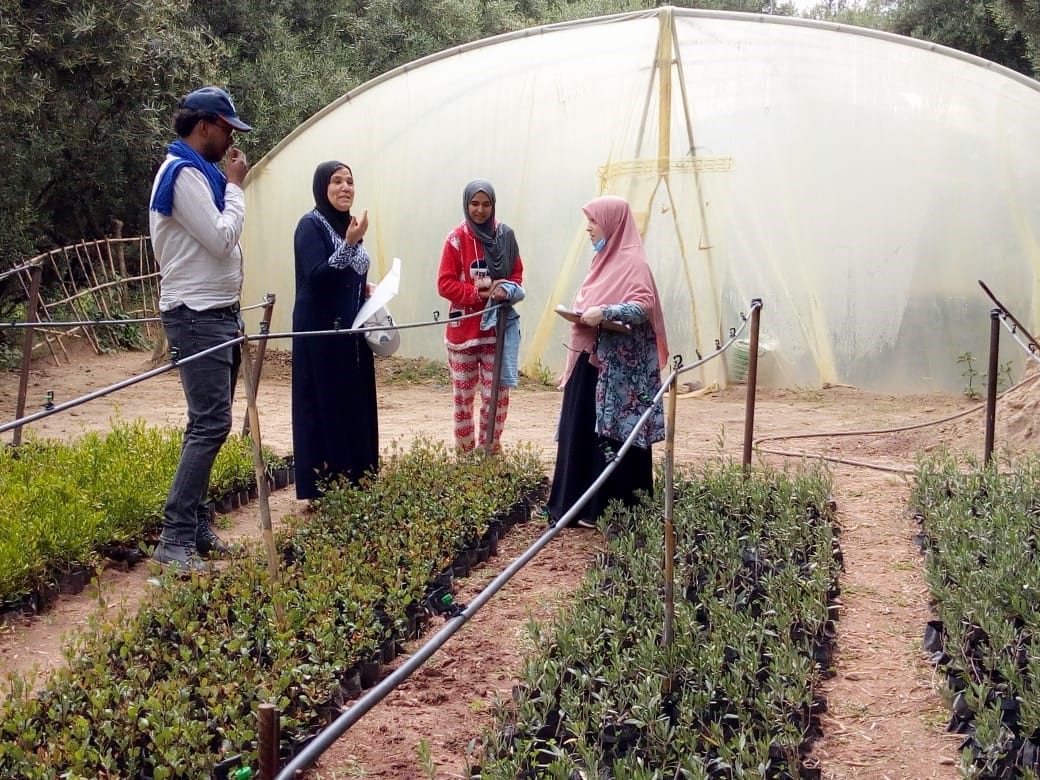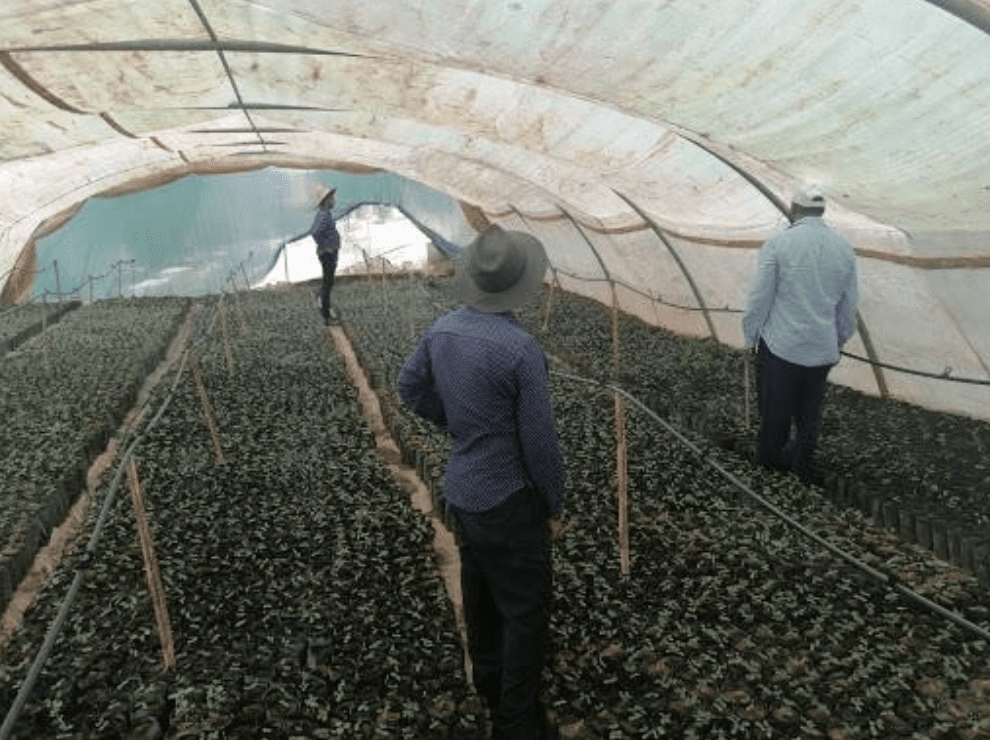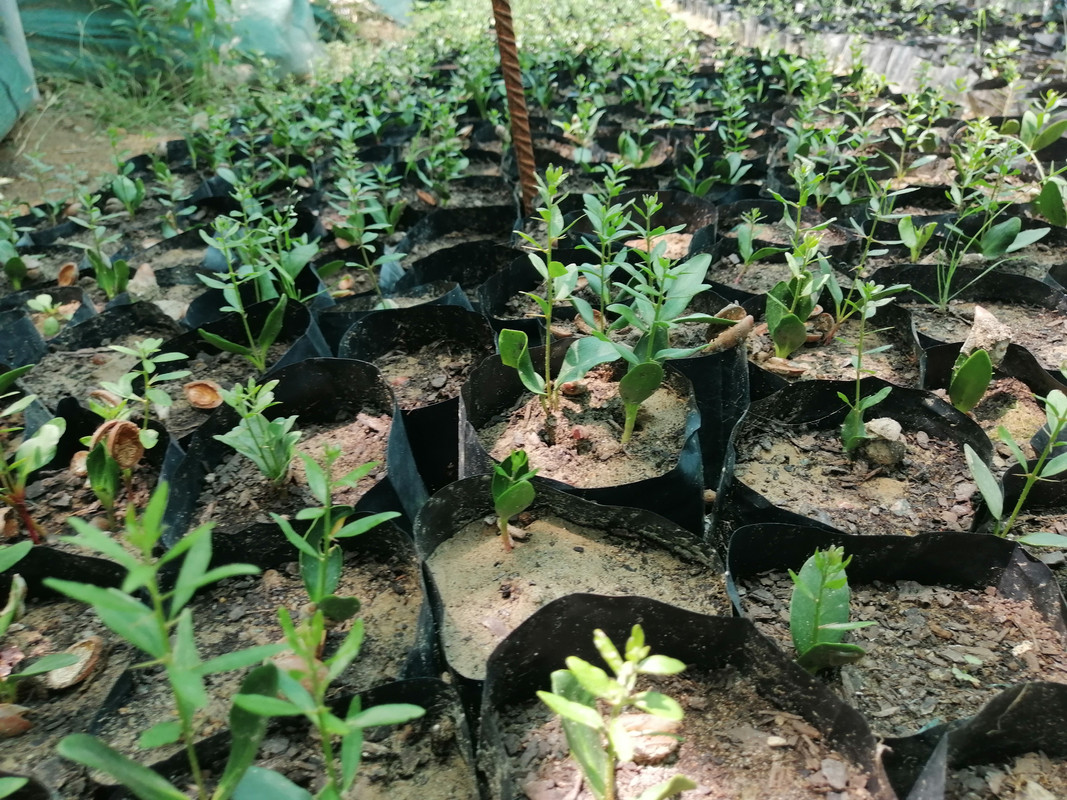Abstract
The High Atlas Foundation (HAF) is an international development organization based in Morocco whose mission is to promote sustainable development. By supporting and empowering local communities on capacity building, clean water initiatives, pro bono legal aid, youth development, women’s empowerment, education, and health, HAF is dedicated to creating brighter and healthier futures for Moroccan communities.
FRÉ Skincare is a company based in Israel that focuses on providing essential skincare products for women, especially for women who lead active lifestyles. Moreover, for every skincare set that is purchased, one argan tree in Morocco is planted.
Overview
The Moroccan people are the center of focus for the High Atlas Foundation (HAF). As a result, HAF began its tree planting journey early in 2000 when they discovered that the Moroccan people wanted to grow trees and plants that meet their needs, such as a sufficient amount of food. To meet this need, HAF formed long-lasting and effective partnerships with other organizations who share the same ambition to achieve environmental sustainability. Organizations such as FRÉ Skincare have proven to be especially beneficial to the people of Morocco, specifically with respect to health benefits, environmental improvements, and women’s empowerment.
Since 2018, HAF is proud to have a partnership with FRÉ Skincare. Founded by Michael Azoulay and Mickael Bensadoun, FRÉ Skincare is a skincare company that emphasizes giving back to the Moroccan community, specifically women. This is achieved through the planting of argan trees in Morocco, specifically in the Province of Essaouira. In essence, planting argan trees serves as the primary means of community building and increased women’s involvement in order to create brighter futures for the community.
Health Benefits, Environmental Benefits, and Women’s Empowerment of Argan Trees
Perhaps the first step in ensuring progress toward environmental sustainability is planting trees. From cleaner air, to increased biodiversity, richer soil, and becoming a primary source of food, trees play an important role in the prosperity of all communities. Argan trees specifically have a key role in the Moroccan community in terms of health benefits, environmental benefits, and women’s empowerment.
Oil is extracted from argan trees that have various uses. According to the bio contents of argan oil, it contains large amounts of vitamin E and can reduce harmful cholesterol and triglycerides. The oil may be used in an array of foods, such as salads, couscous, as well as amlou (similar to almond butter). In addition to contributing to a healthy diet, argan oil has numerous skincare and physical health benefits. Argan oil contains multiple antioxidants which can help against hair loss. It may also be used to treat belly stretch marks, chicken pox pustules, and acne.
In terms of environmental benefits, argan trees are also known to be a common hotspot for tourists due to the fact that argan trees have tree climbing goats! It is known that these tree climbing goats can comfortably climb up to 30 ft above the ground. These goats climb the argan trees because they rely on its leaves and fruits for their dietary needs. An interesting aspect to note about the nature of the argan fruit is that the raw argan fruit is not digestible for humans, but it is for these tree-climbing goats. As a result, after these goats consume and digest the argan fruits, the seeds are collected from their excretions. These seeds are then grinded to make argan oil which, as noted above, has a plethora of benefits. In a sense, argan trees are vital for livestock such as the tree-climbing goats, but one can also note the unique cycle of how argan oil is retrieved. In other words, the livestock, primarily the tree climbing goats provide a source of income for the farmers tending the argan trees and livestock from tourist visits. Additionally, like all trees, argan trees are a source of windbreakers, minimize erosion and landslides, provide wood for home construction and other construction uses, and are sources of shade for animals and travellers.
In terms of women’s empowerment, according to HAF, when argan trees are planted, they are most often cultivated by women’s cooperatives. With HAF providing training on organic certification, these women will now be able to cultivate, process, sell, and receive the entire profits from their own argan. This is extremely empowering for women as they will be able to generate profits and will be able to manage their finances without the authority or decision of a male. Moreover, it instils confidence in young girls who can learn that besides cleaning, cooking, and growing up to becoming mothers, they are as equal as men regarding making financial and household decisions.
FRÉ Skincare Partnership
On March 4th 2021, Dr. Yossef Ben-Meir, president of the High Atlas Foundation was honored to have the opportunity to conduct an interview with one of the founding members of FRÉ Skincare, Dr. Mickael Bensadoun.
Born in Rabat, Morocco, Dr. Bensadoun holds a Master’s degree in Public Administration from Sciences Po Paris, a Master’s degree in International Affairs from Columbia University, and a PHd in Political Science from Bar-ilan University where his thesis focused on the making of the modern Moroccan National Identity. After pursuing his undergraduate and graduate careers, Dr. Bensadoun moved to Israel where he and Mr. Michael Azoulay co-founded FRÉ Skincare.
As noted by HAF, FRÉ uses argan that is harvested and processed in Morocco, and they are committed to giving back to the communities that make their world-class product possible. Upon hiring a dermatologist and with extensive research on ensuring that FRÉ Skincare products consist of natural contents, Dr. Bensadoun stated that the main goal of their company is to “build community” and figure out an effective way to “give back to the community.” Thus, after learning the unique and beneficial properties of argan oil, FRÉ Skincare started an initiative where with every purchase of a skincare set, one argan tree is planted in Morocco in partnership with the High Atlas Foundation.
When asked about the first thing that comes to mind in regards to FRÉ Skincare’s vision and achievement, Dr. Bensadoun stated that “as a brand, it is the community, my passion is to build a global community where we know we are making an impact on women’s empowerment and giving back to nature.” Moreover, Dr. Bensadoun expressed his sincere passion in supporting women and how integral their role is in the societal makeup of communities. He stated that “the Moroccan community has so much to gain from having the women part of society. It is not a secret that the condition of women can be improved. When women rise, society rises.” Dr. Bensadoun highlights the importance of women and how their role can be improved so as to achieve societal, long-term goals, which he integrated into the ambitions of FRÉ Skincare itself. FRÉ Skincare is a company with a strong foundation in empowering women to be confident in themselves, be it through exercising or through argan trees. Dr. Bensadoun states that “we want to inspire other people and say it is possible to combine great responsibility and great social impact.”
HAF’s strong partnerships with organizations such as FRÉ Skincare not only provides long-term environmental benefits, but it is educating the current and next generation of strong, confident women.
Acknowledgements
I would like to thank Dr. Yossef Ben-Meir for conducting and organizing the interview. I would also like to thank Dr. Mickael Bensadoun for his time in sharing his experiences, thoughts, and hopes in the future of FRÉ Skincare. The interview was especially insightful and informative, and I hope that this article depicts the beauty of forming effective partnerships that will empower, educate, and create brighter futures for all.





